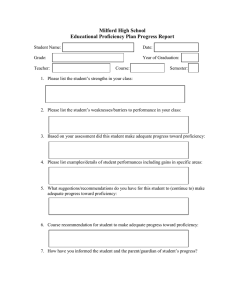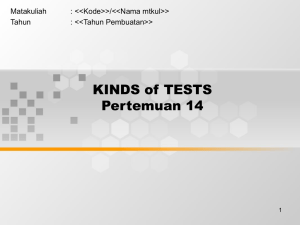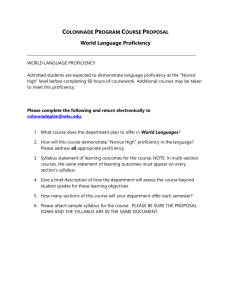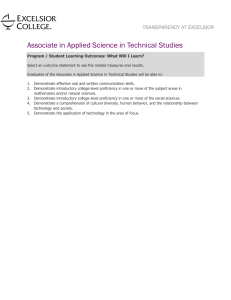Common Types of Tests
advertisement
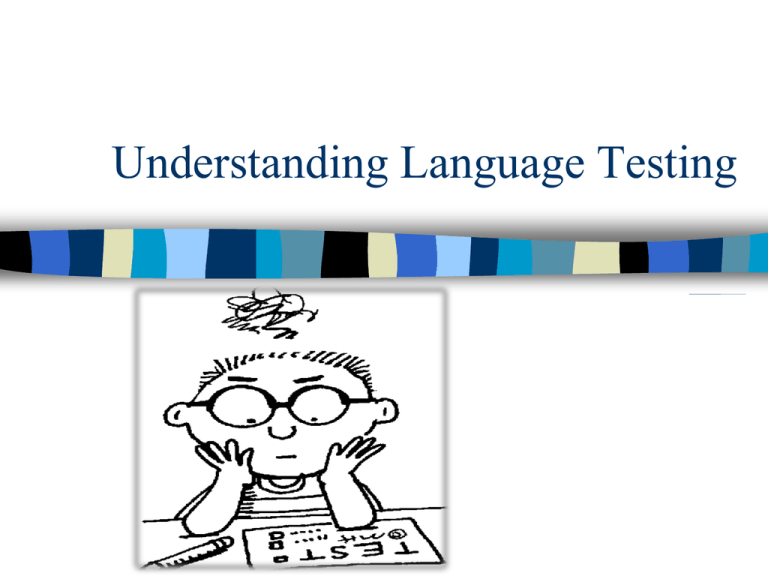
Understanding Language Testing What is testing??? Consider these tests again. Do you think that they give accurate or inaccurate information? What are your reasons for coming to these conclusions? Types of tests Five types of testing: Proficiency test Achievement test Diagnostic test Placement test Direct & indirect test Proficiency test Proficiency tests are designed to measure people’s ability in language, regardless any training they may have in that language. The content of a proficiency test is not based on the content of the objectives of language courses. It’s based on a specification of what candidates have to be able to do in the language in order to be considered proficient. Achievement test The content of the course in achievement tests are directly related to language course. The purpose is being able to establish how successful individual students, group 0f students and the course in achieving the objectives. There are two kinds of achievement tests: Final achievement test Progress achievement test Final achievement test: It’s administered at the end of a course of study The content of the test must be related to the courses with which they are concerned, but the nature of this relationship is a matter of disagreement amongst language testers. In the view of some testers, the content of a final achievement test should be based directly on a detailed course syllabus or the books and other materials used. What is the disadvantages of this final achievement test??? The disadvantages If the syllabus, the books and other materials are badly designed, the result of a test can be very misleading. Successful performance on the test may not truly indicate successful achievement of course objectives. For example: A course may have an objective to develop conversational abilities, but the course and the test require students only to utter statements about certain topics. A course may aim to develop a reading ability in German, but the test limits to the vocabulary the students have to meet. Diagnostic Test It’s used to identify learners’ strength and weaknesses. It’s intended primarily to ascertain what learning still needs to take place. What are the disadvantages/advantages of this test? If you are a teacher, how do you get information about your students strengths and weaknesses? And how do you treat their weaknesses? Placement test It’s intended to provide information that will help to place students at the stage of the teaching programme most appropriate to their abilities. Typically it’s used to assign students to classes at different level. Direct & Indirect Testing It’s said to be direct when it requires the candidate to perform precisely the skill that we wish to measure. Direct testing is easier to carry out when it is intended to measure the productive skills of speaking and writing. Indirect testing It attempts to measure the abilities underlie the skills in which we are interested. E.g. One section of TOEFL in writing section, it’s developed as an indirect measure of writing ability. “at first the old woman seemed unwilling to accept anything that was offered her by my friend and I” Do you think the direct testing is good compared to indirect testing? What are the reasons for your statements?? Thank you,,, Any Question!!!

